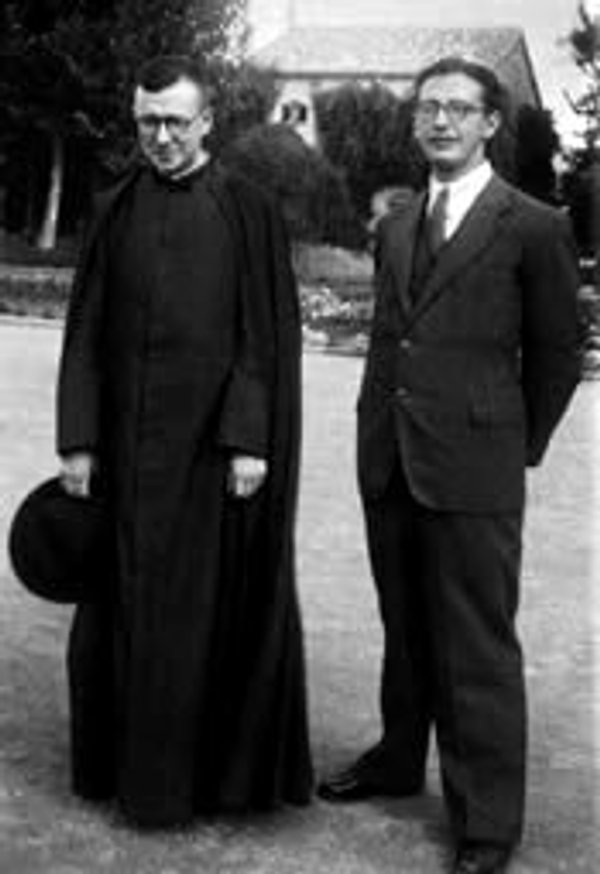Don’t let your life be sterile. Be useful. Blaze a trail. Shine forth with the light of your faith and of your love. (“The Way”, 1)
This point is the first of a treasury of other spiritual considerations written St Josemaría when he was about 30 years of age. “They are things I whisper in your ear, confiding in you as a friend, as a brother, as a father… so that some thought may come to you that will strike you; and that way you will improve your life and enter upon ways of prayer and of Love.” (“The Way”, Prologue)
The love for God and the love for souls was his motivation in writing “The Way”. It has left its mark on the features of contemporary Christian literature, with at least 5 million copies sold in 45 different languages.
“The Way” was first published in 1934 under the Spanish title “Consideraciones Espirituales” (Spiritual Consideartions). It was only when the second and longer version appeared in 1939 that it was given its definitive title “Camino” in Spanish. In a few months, the first edition ran out of copies, and the second edition suffered a similar fate. The first English translation saw the light of day years later in Dublin in 1954. The Chinese version was published in Taiwan in January 1970; it has since been revised and is in its third edition.

A revolutionary teaching
The compilation of brief counsels and advice are made up of passages from Sacred Scripture, snatches of conversation, passages of letters and the personal experiences of St Josemaría working as a young priest from 1925. During the years when the book was being written, he circulated widely among students at the Madrid University and with workers. It was these students that motivated the writing of the book when he realized their need and desire for spiritual guidance.
Born out of a deep Christian experience, “The Way” aims to encourage men and women to love God and to live by God, imbuing a Christian tone to all their earthly interests and activities. “You have an obligation to sanctify yourself. Yes, you too! Who thinks that this task is only for priest and religious? To everyone without exception, our Lord said, “Be ye perfect, as my heavenly Father is perfect.” (“The Way”, 291)

At the time when “The Way” first appeared, preaching like this was not merely unexpected – it was revolutionary. For many, the words of “The Way” were a revelation which made them more aware of their dignity as Christians and of the divine mission which they had in the world.
One of the main attractions of the book is its direct, conversational style and its personal and deeply human character. As a reviewer in L’Osservatore Romano once put it, “Msgr. Escrivá has written something more than a masterpiece; he has written straight from the heart. And these short paragraphs which make up “The Way” –like pearls on a string– go straight to the hearts.”
The choice of the title: “The Way”
The title chosen by St Josemaría is no surprise for those have come to know his spirit. In his own words, he once talked about the significance the word ‘way’ has for him in a meditation given on 31 Dec 1970, Rome:
“I like the word ‘way’ very much, because in God’s sight we are all wayfarers. We are viatores, travelers, heading towards our Creator from the day we entered the world. A person who sets out on a journey has a clear goal, an objective: he wants to get from one place to another. Consequently, he does all he should to reach his goal safely: he doesn’t dawdle, he avoids side-roads and unexplored tracks that might lead to wild beasts or precipices. Keep walking resolutely, my children! We must take as much care of the affairs of God and of souls as others take of earthly affairs — we need to desire holiness…”
It is clear that the points that make up “The Way” were intended to help its readers follow unwaveringly in the footsteps of the Master.
“May the constant reading of this book, my friend, help you to straighten out and consolidate your way.” (St Josemaría, preface to the 3rd Spanish edition, 1945)
* * * * *
You may read St Josemaría’s writings on-line at www.escrivaworks.orgEditions of “The Way” in Chinese can be ordered through info@spring-books.com
